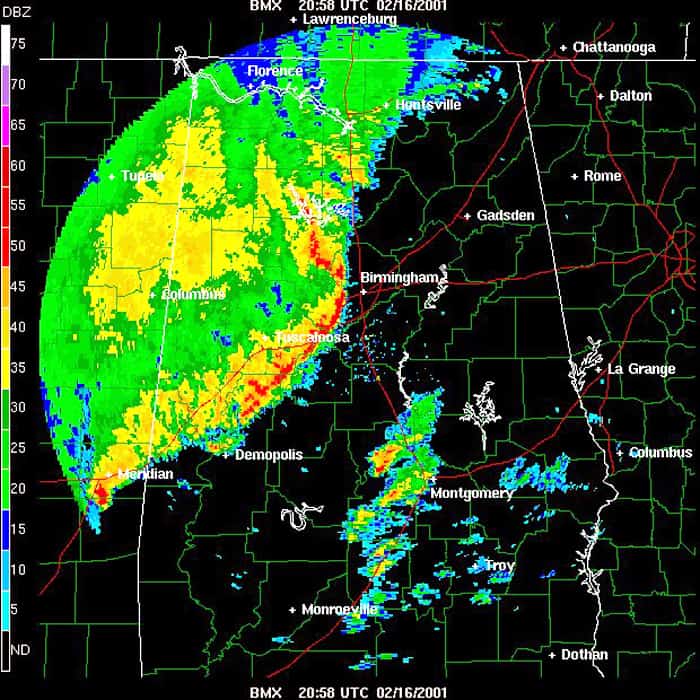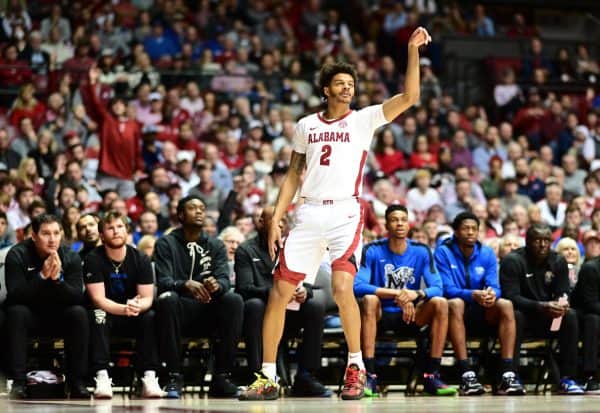UA alert system sends tornado watch late
March 28, 2019
The University of Alabama’s Division of Strategic Communications was about 30 minutes late to issue a watch-level alert for severe weather during spring break on March 14.
Monica Watts, associate vice president for communications in Strategic Communications, said a tornado watch means conditions are favorable for tornadoes and severe thunderstorms in and close to the area.
“While there is no immediate threat to the community, our tornado watch-level weather communications urge everyone to be alert for rapidly changing conditions and encourage those in the area to identify the nearest storm shelter or best available refuge area in the event that severe weather occurs,” Watts said in an email.
Watts said the short delay in the alert was a result of internal miscommunication, but had there been an immediate threat, there would have been no hesitation to send the alert campus-wide.
“As per every tornado watch, procedures were followed to open campus storm shelters,” Watts said. “However, some internal miscommunication confirming the shelters were open resulted in a brief delay in the campus notification being sent. Rest assured, had there been any immediate threat, or if it had been a tornado warning, the alert communications would have been sent without delay.”
This mishap did not cause Gus Harper, a sophomore majoring in history and philosophy, to lose any significant amount of trust in UA Strategic Communications.
“I’m sure they care, if only for monetary reasons, about protecting the students,” Harper said. “I wouldn’t really be worried about it. They very regularly check their tornado sirens and emergency alert things, which is more annoying than anything. But I’m not worried about UA emergency services.”
However, Adam Holzhauer, a junior majoring in biology, said he sees a special importance in the University’s emergency alert system.
“Seeing as how I don’t get any alert whatsoever from the actual city of Tuscaloosa, I’d say it’s fairly important that the University steps up and gets it out to students.”
Holzhauer said he thinks many students rely on the alerts sent out by the University.
“I wouldn’t say that the University is responsible for getting that information out, but I think it’s definitely useful, and I think if they do have that system in place, they’re responsible for making sure it works well, because a lot of people, myself included, use the emergency system from the school as opposed to the public one,” Holzhauer “If I don’t get something from the school, I won’t be informed at all.”
WVUA 23 Meteorologist Richard Scott said it’s important to observe severe weather warnings regardless of whether people think the severe weather will cause any meaningful damage.
“A tornado that touches down is usually pretty small, relatively speaking,” Scott said. “Usually tornadoes are less than a half of a mile wide. So you think about a polygon that is 10-12 miles wide, if there’s a tornado inside of that only affecting about a half mile of an area, a lot of people aren’t going to be impacted by the tornado.”
Though there is a tendency of people to become apathetic to these watches and warnings, Scott said people need to observe warnings, regardless of odds.
“We struggle with complacency because not everyone is going to be hit by the tornado,” Scott said. “But you go down to places like Lee County that just got hit by the violent tornado down there a few weeks ago. Those people, some of those people, were complacent. Some of those people didn’t even take the warning seriously even though there was a confirmed tornado down, and a lot of people died from that. Twenty-three people were killed down there.”











